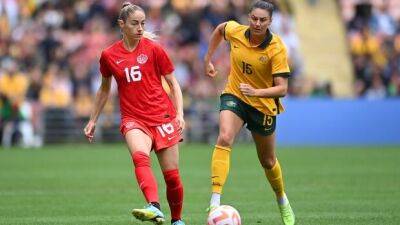How mentoring can make a difference in rapidly changing world of women’s cricket
C hanging rooms can be lonely places. When Isa Guha started playing cricket she was the only girl in an all-boys team and when she was only a little older, the only girl in an all-women’s one. A lot of the women she played with and against in her 10 years of international cricket had similar stories, so do a lot of the women she watches and talks about now, a decade later, in her second career as a presenter and commentator.
“Being the only girl in a team, that’s still quite common,” Guha says. “It probably helped my cricket, because I was spending so much time out of my comfort zone, but it still came with the same feelings of isolation.”
Last year, Guha launched a non-profit mentoring organisation, Take Her Lead, working in women’s cricket. Before the launch, they commissioned a survey of 300 young female cricketers about their experiences. “I know we all feel we have a pretty good idea of what’s going on, but there’s nothing like speaking to people who are coming into the game,” Guha says, “and we were shocked that experiences they were talking about were the same experiences our mentors had had when they were growing up. It made me realise the sport hasn’t moved forward as much as we think it has.”
They told stories about being uncomfortable wearing whites, because of their periods, but feeling unable to talk to any of their teammates and coaches about it. They spoke, too, about the sense they needed to be twice as good as the boys they were playing with, to prove they deserved their place, and the sense of isolation, of having no one to talk to about it all, because there are so few female coaches.
“There were times when I was 12 or 13 when I wanted to quit the game because I felt so isolated,” Guha says. In her







